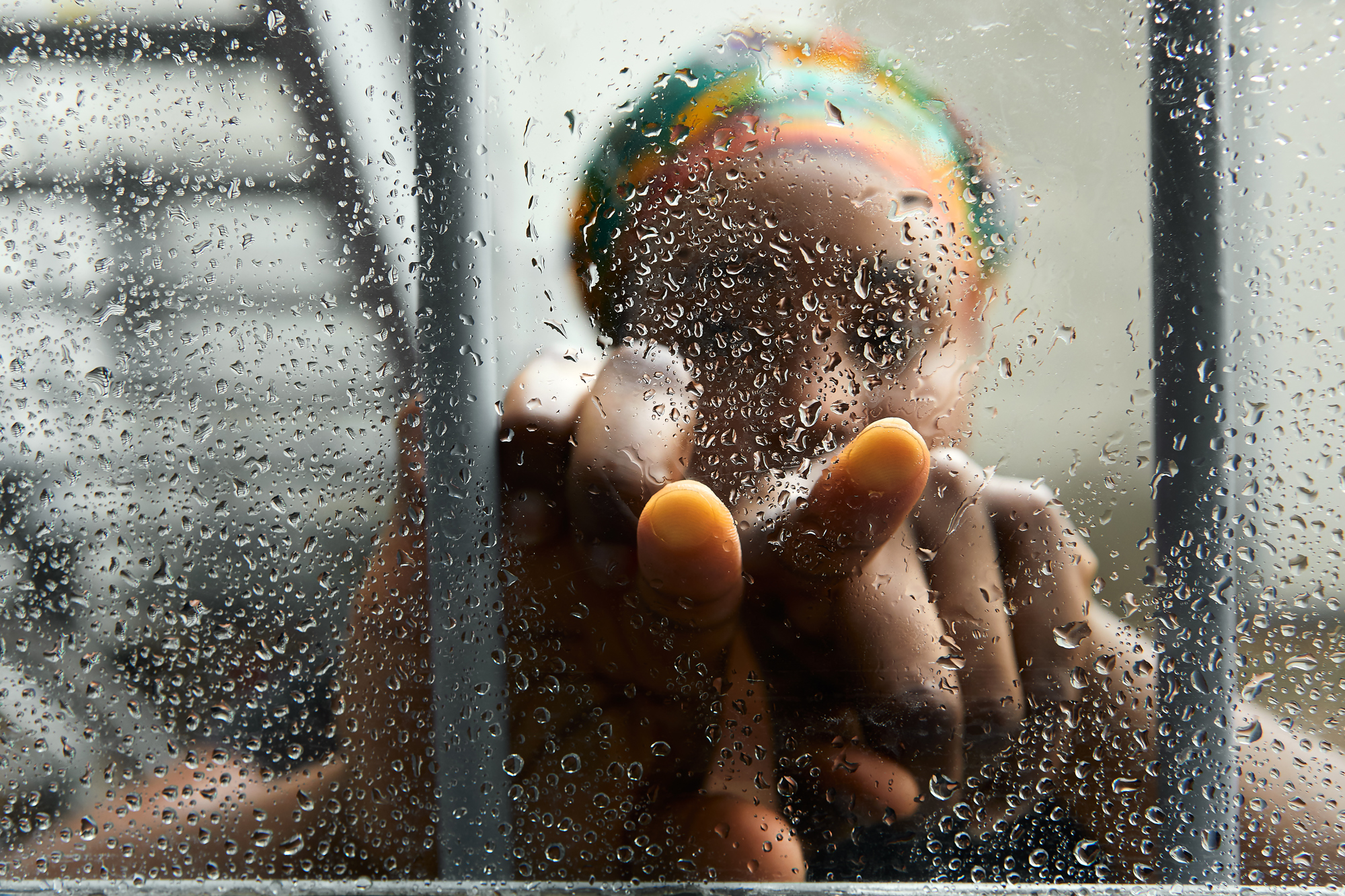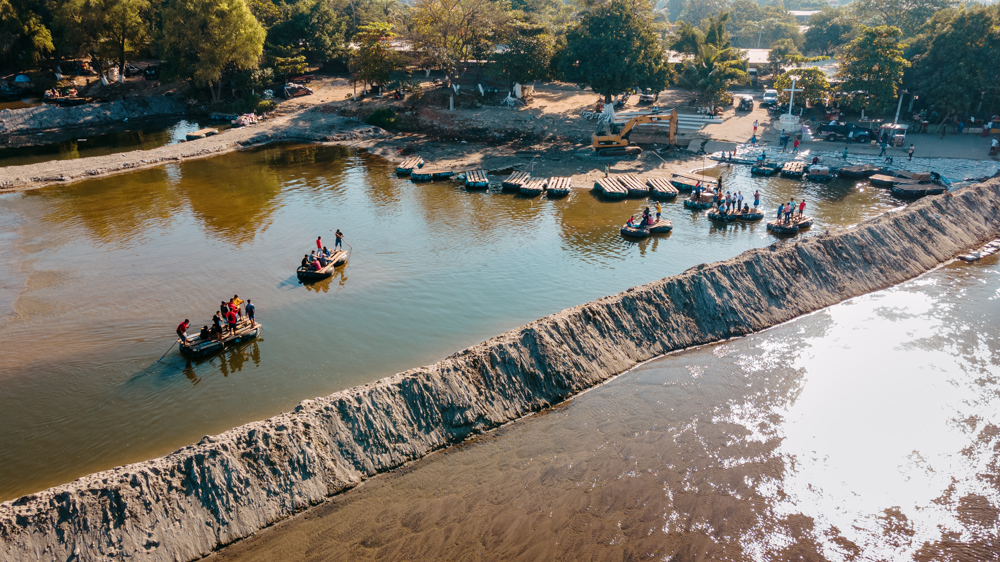This is not charity, it is justice
Lujan Mourad, director at the Khalid Bin Sultan Al Qasimi Humanitarian Foundation (KSQF), on the role for philanthropy to deliver systemic change.
Tuesday, 02 September 2025

Lujan Mourad, director at the Khalid Bin Sultan Al Qasimi Humanitarian Foundation (KSQF), on the role for philanthropy to deliver systemic change.
Tuesday, 02 September 2025

 Lujan Mourad is the director of the newly-established Khalid Bin Sultan Al Qasimi Humanitarian Foundation (KSQF), set up to protect children in vulnerable situations around the world. Born and raised in the UAE, Lujan studied IT at university but after a short spell in events management, her life was changed by a series of volunteering experiences in Tanzania and Greece prompting her to commit her career to the social and development sector. For nearly two decades, she worked at a large Abu Dhabi foundation, leading community programmes.
Lujan Mourad is the director of the newly-established Khalid Bin Sultan Al Qasimi Humanitarian Foundation (KSQF), set up to protect children in vulnerable situations around the world. Born and raised in the UAE, Lujan studied IT at university but after a short spell in events management, her life was changed by a series of volunteering experiences in Tanzania and Greece prompting her to commit her career to the social and development sector. For nearly two decades, she worked at a large Abu Dhabi foundation, leading community programmes.
The Khalid Bin Sultan Al Qasimi Humanitarian Foundation (KSQF) was established to honour the legacy of the late Sheikh Khalid bin Sultan Al Qasimi, embodying his vision of a safer world for children, particularly those in conflict zones. Her Highness Sheikha Jawaher bint Mohammed Al Qasimi, wife of His Highness the Ruler of Sharjah and our chairperson, has brought this vision to life through the foundation.
Our location in Sharjah is deeply meaningful, not just symbolically, but strategically, because for decades, the emirate has quietly but consistently prioritised human development and inclusion and played a transformative role in the humanitarian space both locally and internationally.
Moreover, the UAE is not just participating in global humanitarian conversations but actively shaping them. There is a deep commitment here to tackling complex global issues like child protection, forced migration, and exploitation, with integrity, innovation, and a sense of shared responsibility.
KSQF is an international foundation, and our programmatic work is global and grounded in three pillars: safeguarding initiatives, capacity building, and advocacy.
We prioritise initiatives that protect children from exploitation, be it forced labour, trafficking, child marriage, or other forms of violence.
Our approach goes beyond addressing symptoms to tackle root causes to create lasting, systematic change. And we never say ‘vulnerable children’, we say ‘children in vulnerable situations’. Language matters, it shapes how we see and support those we serve.
“The agility and independence of philanthropy are essential when addressing complex and deeply rooted issues such as child labour, trafficking, and violence.”
In Zanzibar, we’ve partnered with Save the Children to support survivors of gender-based violence – both women and children - with legal aid, capacity building, and community empowerment through awareness campaigns.
We’ll be working in Unguja, the main island of the Zanzibar archipelago, as well as Pemba. We aim to directly benefit more than 1,000 survivors and indirectly impact 10,000 people in the wider community.
Meanwhile, in Mexico, we’re partnering with Plan International on a project called “Guardians of Children” to protect children on the move, along migration routes. The target is to support 7,000 migrant children and adolescents and for an additional 15,000 individuals to benefit from awareness campaigns and community capacity building efforts.
Another initiative we’re looking at is in the Democratic Republic of Congo, focused on children working in mines, and in parallel, research is underway in Morocco, Iraq, and South Asia to hopefully expand our programmes into SWANA (South West Asia and North Africa) later this year.
Our country selection is based on extensive research, consultation, and government readiness. Without government support, programmes cannot sustain themselves, so it’s important we work in partnership.
We also align our work with global frameworks like the Sustainable Development Goals—specifically 8.7 (child labour and trafficking), 16.2 (protection from abuse and exploitation), and 5.3 (eliminating forced marriage).

In Mexico, KSQF is partnering with Plan International to protect children on the move, along migration routes. Photo: KSQF
Philanthropy plays a critical role in this work. The agility and independence of philanthropy are essential when addressing complex and deeply rooted issues such as child labour, trafficking, and violence.
Unlike government bodies, which are often bound by bureaucracies and political cycles, philanthropy can take calculated risks, fund under-explored solutions, and support organisations that are closest to the problem but furthest from traditional funding.
Philanthropy serves as a connector, linking grassroots efforts with global expertise, bridging gaps where public institutions are undersourced or unable to act.
At its best, it complements and strengthens the work of governments and multilateral bodies. We see philanthropy as a way to push for greater accountability, invest in long-term systematic change, and ensure that the voices of children and communities are not just heard, but centred in our response.
Crescent Petroleum, Beeah Group, and Alef Group, leading Sharjah companies, have supported us with legacy funding, and these partnerships are vital for our sustainability.
We don’t use the term ‘fundraising’, we call it ‘friend-raising’ because we want our partners to be involved, to receive our reports, to visit our sites, and to see firsthand where their support is going. It’s not about CSR. It’s an entire ecosystem.
Protecting children is not an afterthought, it’s a fundamental obligation. And child protection is not charity. It is justice.
When we act together - across sectors and borders - we can shift the systems that fail children and create lasting impact. It’s devastating when there’s inaction. Children forced into labour, trafficked across borders, left without education or legal identity—the damage ripples across generations.
If I could change one global perception, it would be this: child protection is not a charitable add-on. It is a basic human right and a precondition for sustainable development.
We’re small, but we have big dreams. We’re grant-giving, expanding, and fundraising to do more. And we’ll keep going, step by step, because this work is not just important. It’s essential.
It's a good idea to use a strong password that you're not using elsewhere.
Remember password? Login here
Our content is free but you need to subscribe to unlock full access to our site.
Already subscribed? Login here